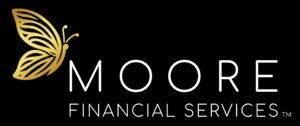
Real Estate Investing is the greatest wealth builder in history, but it requires a focused plan, determined effort and time. And, like all endeavors, it won’t always go as planned. We’ve all made mistakes. It’s just a part of living, trying, and learning. And, it will happen to you as part of your investment career eventually, if it hasn’t already. Wouldn’t it be nice though if you could learn from the mistakes from others? How much could you save in time, money, and frustration by learning about the most common mistakes in real estate investing. What would that be worth? In this two part series you’ll learn the 10 common mistakes of new real estate investors. If you’re just starting, print this series out. Refer to it often. If you are already a real estate investor, review this list again. Make sure you don’t forget the fundamentals. Your balance sheet will thank you.
The goal of all of this is to spend less money than what the property is eventually sold for. This is how real estate investors make their profit, and how many of them make their living. But money isn’t all you need to start investing in real estate. For those who have the money, time, and smarts to make real estate a success, property investments can pay off in a big way. But real estate investing isn’t something that everyone can do. If you want to know how to start investing in real estate, you have to be committed to the property you buy. It’s your money, it’s your future, and you’ll probably want to take a very hands-on approach to make sure your investment brings back a great profit. In order to succeed at real estate investing, the property you invest in must be sold. To get your money back, and to get that profit that’s so needed, you have to give buyers what they want. You want the property you’re selling to be attractive, livable, and worth all the time and effort you put into it. Budget for renovations carefully, and try to stick within these financial constraints. The more you spend on your property, the smaller your profits will be. But it’s a fine line to walk – spend too little, and you may not get the sale price you’re asking for. To get started investing in real estate, pay attention to the property market. Find out what’s selling, for how much, and in what areas. Some areas are going to have properties that take a long time to sell, and you may not want to waste your time here. Choose hot locations, good properties, and something that’s in your budget. Running out of money when you’re investing in real estate means losing your entire investment. You have to finish what you started, so many sure you don’t put all your money into just one property. When you know how to start investing in real estate, you open up great potential for your future success.
What is a Self-directed IRA? Unlike a regular IRA that you open with a brokerage firm, a self-directed IRA lets you take control of your own investment. And you’re not limited to only stocks, bonds and mutual funds. What can you invest in with a self-directed IRA? How to use a Self-directed ROTH IRA in your real estate investing? If you contribute money to your Roth IRA, that money grows tax-free, since your contributions are after-tax money. With what you have in a self-directed Roth IRA, you can purchase rental properties. The rental income that is generated is tax-free. When you sell your rental property for a profit, it is tax-free. If you ever ended up in a legal litigation, your real estate properties in your self-directed IRA is protected, because you don’t own it. Your IRA owns the properties. Isn’t that a great retirement plan and asset protection strategy?
I cover a number of rental property nuances including real estate analysis, land lording and property management, tax issues, plus everything in between. These articles are free to read, print, and share. 2. Free videos. These are short, to the point, and informative. The library is still rather modest, but you will learn such things as how to calculate cap rate and construct an APOD. In time, I hope to add more real estate investing teaching videos. 3. Free cap rate calculator. This is online at my site. Simply follow the link that reads Calculate a Cap Rate. In addition to calculating the cap rate, the calculator also displays the formula, so you really can compute and learn at the same time. 4. Free mortgage calculator (with amortization schedule). This is also online at my site. Simply follow the link that reads Calculate a Loan Payment. You make just three entries and click. The results are a monthly loan payment, total interest, and full amortization schedule. You can access all these real estate investing resources, including the articles, videos, and calculators without any obligation. They are yours to use 100% FREE without having to subscribe to anything. What’s the catch you ask? There is no catch, but you can do one thing for me in return. Preview and remember my real estate investment software. When you’re ready to start in with real estate investing, you will need a good software program for your real estate analysis. Keep ProAPOD in mind. It will serve you well, I promise.
Note that tax benefits are a bonus, not a reason to buy real estate. The idea is to make money first, and then save taxes on the income you receive. How many of you would agree that the greatest expense you will have in your lifetime is taxes? Real estate can help you avoid taxes legally. There is a big difference between tax evasion and tax avoidance. We simply want to take advantage of the legal tax ‘loopholes’ that Congress allows us to take, because since the founding of the United States, the laws have favored property owners. Today, the tax laws still contain ‘loopholes’ for real estate investors. Congress gives you all kinds of financial reasons to invest in real estate. When you look at earned income, such as wages from your job, you could possibly be paying taxes on 50% of that income, counting federal, state, and FICA (Social Security and Medicare). If you sell a property you have owned for a year or more, the profit is considered investment income, and you pay only long-term capital gains tax on it, which is currently at 15%, which is a much better rate then 50%!
Real estate investing means purchase, ownership, management or rental/sale of real estate for profit. Many people find it difficult to invest. It requires a lot of cash. Are you interested in becoming a real estate investor? To become a successful investor you should be determined and flexible. There are a few tips that will help the prospective buyer to become a successful investor. A investor should decide whether his investment goals are long term or short term. As the investor keeps paying the mortgage amount, his dues becomes less and his equity in the property increases which adds to the overall net worth. If an investor does a real estate investment for short term he can earn a decent profit. For example: If you have purchased a property for nearly $50,000 which needs some repair work to be done which costs nearly $10,000 and the selling costs total $5,000. Then the total cost would be $65,000.
